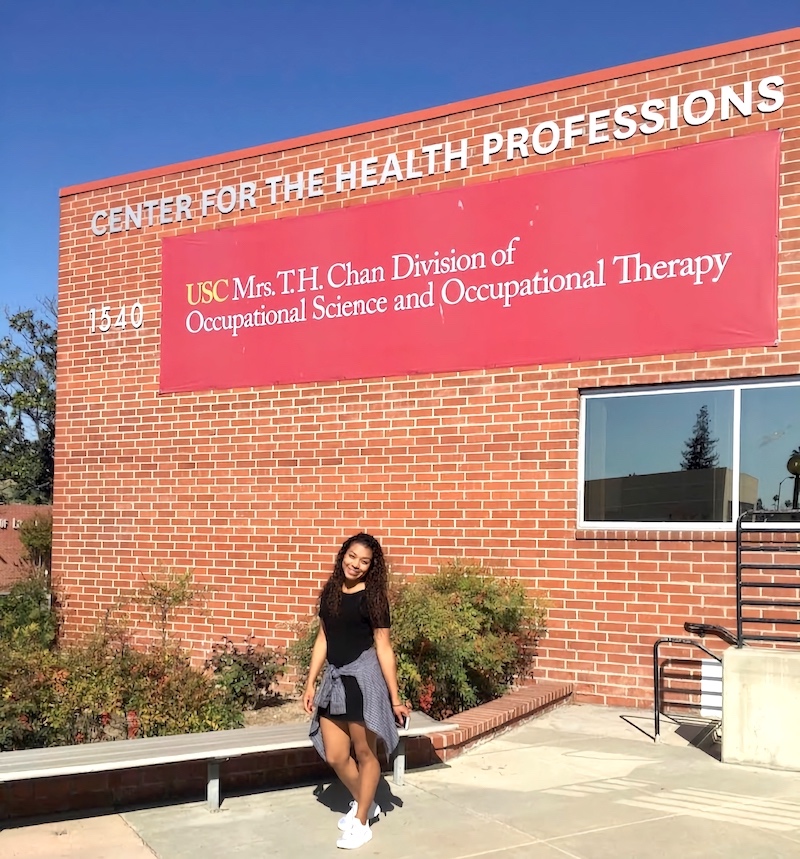Student Blog
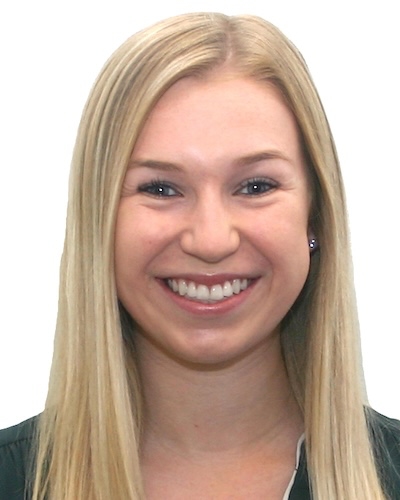
Preparing for Level I Fieldwork ⟩
September 6, 2018, by Jessica P.
At USC, our Level I Fieldwork is tied in with the 3 different immersion courses: Adult Physical Rehabilitation, Mental Health, and Pediatrics.
But wait . . . what is fieldwork? As Caroline explained here before, our Level I Fieldwork is a site that students go to once a week throughout the semester and one full week about halfway through the semester. We get experience in 3 different practice areas at a variety of sites across the Los Angeles area.
Whether it is your first Level I Fieldwork or your third, starting Fieldwork at a new site can be exciting and nerve-wracking. Here are my tips for preparing for Level I Fieldwork:
- Dress the part. On your first day, make sure you dress accordingly with the site’s dress code. Some sites may ask you wear scrubs and your white coat, while others may require business casual. I always error on the side of more formal because it is better to be more dressed up than down!
- Come prepared. Bring copies of all the documents you may need to start, such as your HIPAA certification. Make sure to bring pen and paper as well to take notes throughout the day.
- Keep your eyes open. The goal of Level I Fieldwork is to get exposure to OT in different settings, apply what we are learning in classes to practice, and to develop understanding of the needs of the patients. Whether your fieldwork site allows you to be hands-on with patients or not, there is always something you can learn by observing therapeutic interactions.
- Ask questions. Fieldwork experiences can sometimes be very different from what we see and hear in our classes. Ask your clinical instructor questions about why they did what they did, it will help you to understand their clinical reasoning. If you have questions while you are with a patient, write them down to ask later.
- Know your learning style. Before our fieldwork, students at USC are asked to complete a learning style inventory. It is important to know how you best learn and share this with your clinical instructor.
- Use your resources. Throughout all of our fieldwork experiences, we have an entire fieldwork team, along with faculty to support us. They are always available if you have questions, need advice, or just want to discuss how fieldwork has been going.
Remember, Level I Fieldwork is all about the learning experience. There is no better way to solidify what we learn in the classroom, than to see it out in the field!
⋯
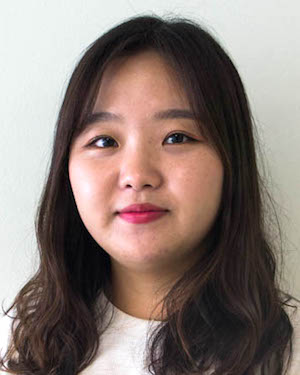
Why Did I Choose Occupational Therapy? ⟩
August 30, 2018, by Goeun
Whenever I say to people that my major is occupational therapy, they ask me, “What is occupational therapy?” then other questions that follow are “How did you know occupational therapy?” and “Why did you choose occupational therapy as your major?” So, I’d like to share my story about why I wanted to study occupational therapy and came to USC for further studying.
I can say whenever I get questions about the reason I chose occupational therapy, I say the word “participation.” I first heard about occupational therapy when I was in senior year of high school. I was searching a major for a university, and I could find occupational therapy on the list that might fit me. I searched for it, then I could find the definition which was helping people with physical or mental illness to “participate” in the meaningful activities that they used to do before the injuries. I thought this is interesting and rewarding as I thought by helping them participate in their daily lives, they can live happier despite their illness.
After graduation, I worked as an occupational therapist for one year in Korea, and I kept thinking that I need to study more about it because I wanted to be a better professional and learn more about some parts which I was interested in but I haven’t experienced much (e.g., out-patients’ environmental modifications, since I was working with acute patients). So, I decided to apply for the Post-Professional Master’s Program here at USC since it is one of the best schools for occupational therapy. These are the reasons why I chose occupational therapy as my major and came here to USC to study more about occupational therapy. I’m looking forward to learning and exploring more about it!
⋯
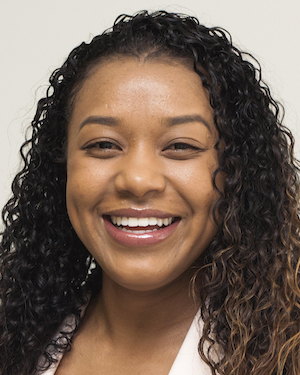
My Dream Career ⟩
August 27, 2018, by Serena
How did I choose OT? Honestly, I am very fortunate that USC has one of the top ranked Occupational Therapy programs in the world because I actually selected USC first. I know it sounds backwards and different but it led me to the profession I always wanted to pursue, yet did not know existed.
Upon graduating from UCLA with my degree in Psychology, I had no idea what I wanted to do except for 3 things: 1) I wanted to go back to school (yea . . . I’m a nerd and actually love school); 2) I wanted to work with children; 3) I desired to attend USC for graduate school. The research based institution and strong sense of community at USC is what drew me to look into the programs they had to offer. I looked at the vast list and instantly paused and did a quick Google search when I saw Chan Division of Occupational Science and Occupational Therapy. I became intrigued and wanted to learn more about the profession so I reached out to USC faculty members Dr. Shelby Surfas, Dr. Beth Pyatak, and Dr. Camille Dieterle, who kindly gave me their time to passionately inform me of the vast settings and populations OTs can serve. The profession further piqued my interest when I noticed the genuine love the professors had for their job and it would only make sense since occupational therapy is ranked #9 as the Best Health Care Job.
I began shadowing and volunteering in schools, private practices, and hospitals where I fell more and more in love with the care that the occupational therapists provided. Under the mentorship of Dr. Jazminne Orozco and Dr. Alex Nishi, I volunteered in the AltaMed general pediatrics clinic at Children’s Hospital Los Angeles with a comprehensive behavioral family-lifestyle intervention program, BodyWorks. This is where I found my love for the unique lifestyle intervention occupational therapists can practice. I observed how the intervention brought a unique lens to the healthcare system by helping families prevent and manage chronic diseases by focusing on their habits and daily routines. Empowering, aiding, and educating individuals to live a happier and healthier life by addressing the areas in their life that mattered most to them was what further drew me into OT and confirmed my commitment to the field.
I could go on and on about why I chose OT because I am absolutely in love with the profession. Since studying OT for the past year, my interest has expanded to treating the entire lifespan. With every class I attend, I seem to learn about a new area of practice that I could see myself going into. I truly feel like it is a dream come true to be able to pursue a profession that is dedicated to helping people do what they want, need, and love to do. It’s so rewarding to be able to place the client first and acknowledge their health with a holistic lens. If you have any comments, questions, or clarifications, please feel free to reach out or comment below!
After receiving my acceptance letter, I quickly drove down to the Health Science Campus to take a picture in front of my dream OT school . . . and a year later, it still feels like a dream!
⋯
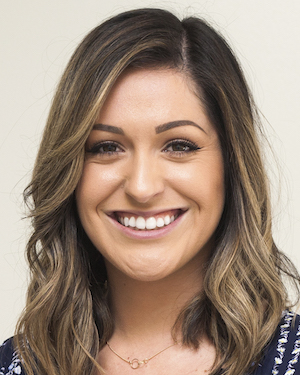
How I Fell in Love With OT! ⟩
August 24, 2018, by Melissa
Hey everyone! As my first post, I thought I’d share a bit about how I ended up at USC studying occupational therapy!
I’ve always known that I want to work in healthcare — I was actually studying to become a nurse when I first learned about OT! After my grandmother was diagnosed with cancer, I helped my family care for her. She suffered some nerve damage as a result of her radiation treatments, therefore she was referred to an occupational therapist in order to restore some function and increase her independence. It was then that I was first exposed to the profession, and I fell in love with its holistic approach. The therapist was kind enough to answer all of my never-ending questions — as my interest increased the more I learned about it — and I immediately went home to do some additional research.
Soon after, I made the decision to pursue occupational therapy, and I began to volunteer in different settings in order to increase my exposure, as well as to see if OT felt like the right fit for me. Some of those settings included a hand therapy clinic, an elementary school classroom, an outpatient pediatric clinic, and hippotherapy. Despite the differences in the settings, I realized that occupational therapy offers a unique lens in the healthcare industry with its holistic approach. Fortunately, I can say with confidence that I have had no doubts about my career choice since embarking on this journey.
This year, I have learned more about this field than I could have ever imagined, and I’ve realized that the possibilities about what you can do with a degree in occupational therapy are endless! I’m excited for what’s to come, and I can’t wait to share the rest of my journey with you guys!
Fight on!
⋯
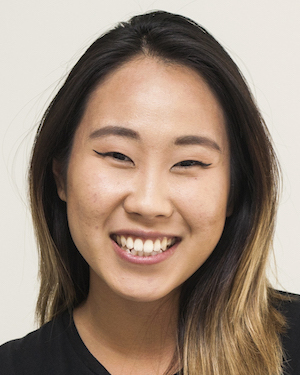
Beautiful Disruptions ⟩
August 23, 2018, by Joyce
While you can easily Google the definition of OT, more often than not, you will find that each individual explains OT in unique ways. It goes to show the power of personalization that OT practices. To me, OT is all about taking disruptions in your life and turning them into something beautiful . . . beautiful disruptions.
What do I mean by that? When I get asked the question, “Why did you choose OT?” I never leave out the story of my grandmother. She experienced a car accident decades ago, before I was born. It was a T5/T6 incomplete spinal cord injury. She was paralyzed from the waist down and as the years passed, the caregiver burden grew and my grandfather could no longer care for her alone. That is when my family decided to move in.
I remember I would use my grandmother’s reacher as my play toy to pinch my little brother. I would also get in trouble riding around in her wheelchair. To society these are representations of disability, weakness, and annoyance. But I saw the little but impactful influences they had on my grandmother’s quality of life.
My grandmother’s accident and injury disrupted my family’s lives. My father had to quit school and my mother was constantly caring for her mother-in-law. Family trips were difficult to plan because at least one of my parents had to stay home to be with my grandmother. Our day-to-day schedule worked around my grandmother’s bowel and bladder movements. As a child, I envied other grandmothers who drove their grandchildren around!
However, these disruptions were beautiful in themselves. I created an important and healthy relationship with my grandparents. Many of my friends grew up without grandparents! All in all, I realized that I am the happiest when I am serving others. This has led me to a career path that sets my heart on fire! This specific disruption brought my family closer as we worked to overcome every obstacle together.
OT guides the individual to take the disruptions in their life (like physical illness, mental health, financial difficulty, medication management, etc.) and turn them into something meaningful, something beautiful, thus turning them into beautiful disruptions.
⋯






